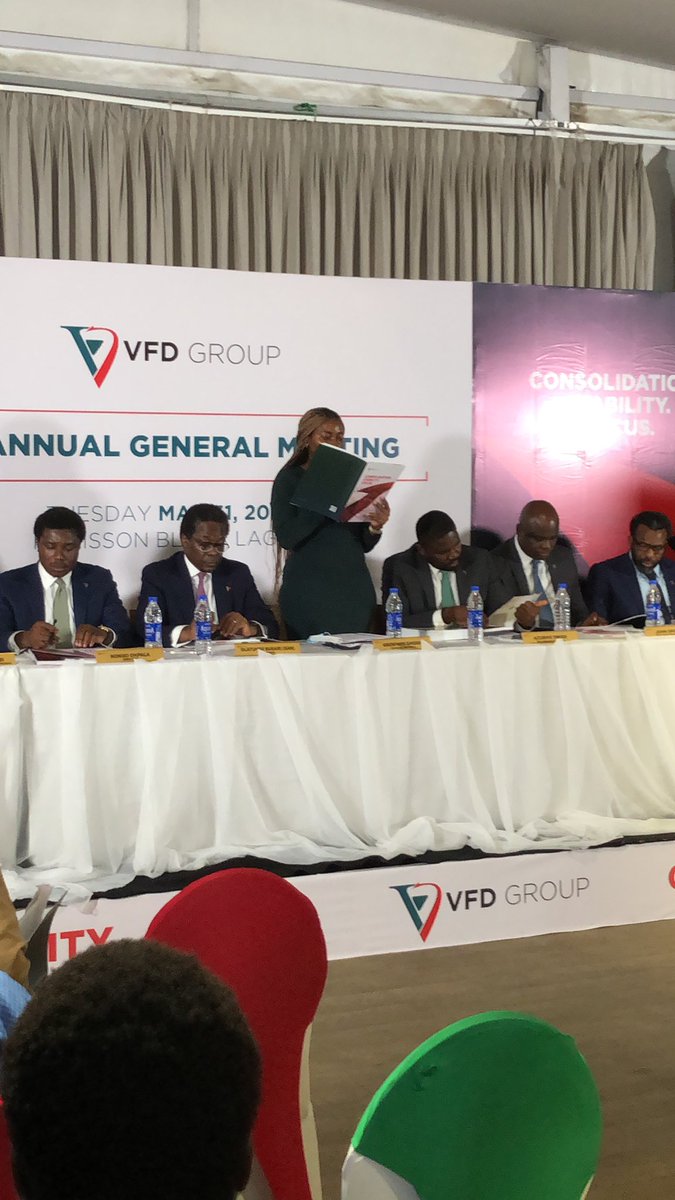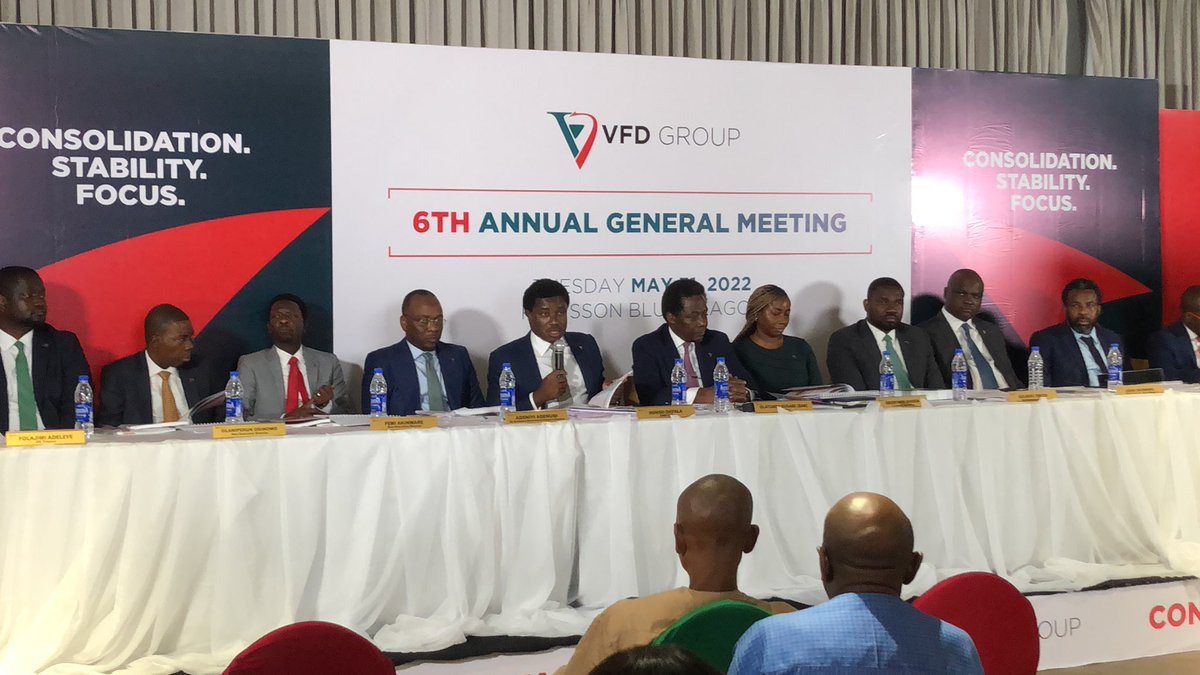Opening speech and introduction of members of board of directors by @VFDGroup Chairman Olatunde Busari (SAN) #VFDGROUPAGM6 

Company secretary Gbeminiyi Shoda read the Notice of the 6th annual general meeting @VFDGroup #VFDGROUPAGM6 

We are proposing a dividend of N10.79 per ordinary share, based on the groups strong performance and dividend policy. #VFDGROUPAGM6
@VFDGroup we recorded our highest gross earnings with growth at 49.4% year on year to N9.9bn (2020: N6.7bn)
#vfdgroupagm6
#vfdgroupagm6
Deloitte & Touche auditors mentioned the group @VFDGroup has kept proper books of account, so far as appears from our examination of those books.
#VFDGROUPAGM6
#VFDGROUPAGM6
We are creating an ecosystem unlike any other. Our ecosystem provides a mechanism for entities to leverage technology and improve operations efficiency through shared services. - @NonsoMOkpala GMD @VFDGroup
We will be introducing an award for best MD of unit company @VFDGroup - Olatunde Busari (SAN)
@NonsoMOkpala Group Managing Director @VFDGroup responding to questions from shareholders #VFDGROUPAGM6 

Shareholders voted to declare a dividend of N10.79 per ordinary shares… #VFDGROUPAGM6 

Shareholders approved the appointment of the following directors:
1. MR Kelvin Orogun
2. MR Femi Akinware
3. MR Folajimi Adeleye
4. MR John Okonkwo
5. MR Olanipekun Osinowo
#VFDGROUPAGM6 @VFDGroup
1. MR Kelvin Orogun
2. MR Femi Akinware
3. MR Folajimi Adeleye
4. MR John Okonkwo
5. MR Olanipekun Osinowo
#VFDGROUPAGM6 @VFDGroup
@VFDGroup #VFDGROUPAGM6 thank you for joining us.
• • •
Missing some Tweet in this thread? You can try to
force a refresh














